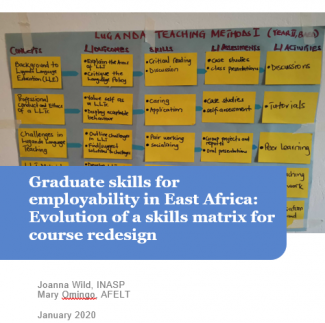
Graduate skills for employability in East Africa: Evolution of a skills matrix for course redesign
Download publication files
Students need to be equipped with critical thinking and problem-solving skills to contribute fully to employment and wider society when they graduate. It is therefore very important for universities to understand the types of skills that employers want to see from graduates and the skills gaps that currently exist.
The Transforming Employability for Social Change in East Africa (TESCEA) partnership, which is working with universities in Tanzania and Uganda, recognized the need to understand this issue deeply. The TESCEA partners therefore conducted a literature review to identify key skills and skills gaps identified worldwide, with a strong focus on literature from Sub-Saharan Africa.
The literature review was used to create clusters of key skills, which were then mapped onto the Taxonomy of Significant Learning framework to create a skills matrix.
This skills matrix was integrated into the methodology for TESCEA course redesign workshops to help students acquire desired skills and dispositions alongside subject content knowledge. It is now being used to facilitate development of course-level outcomes and, at the lesson-planning level, to help teachers pull more granular skills, abilities and dispositions into the class-level learning outcomes.
